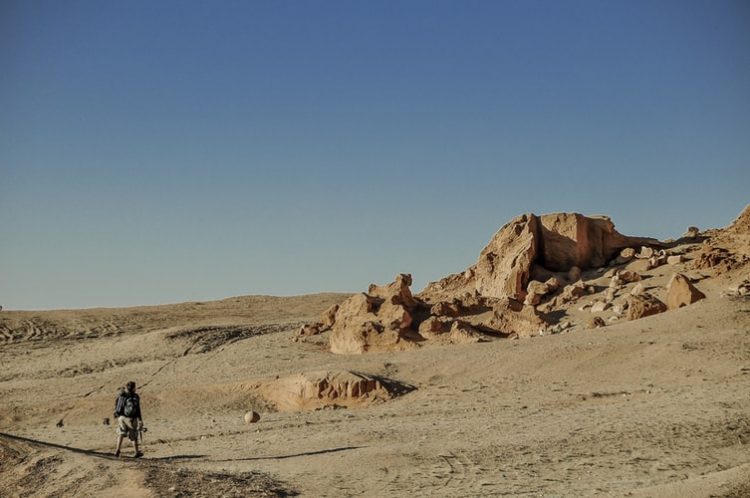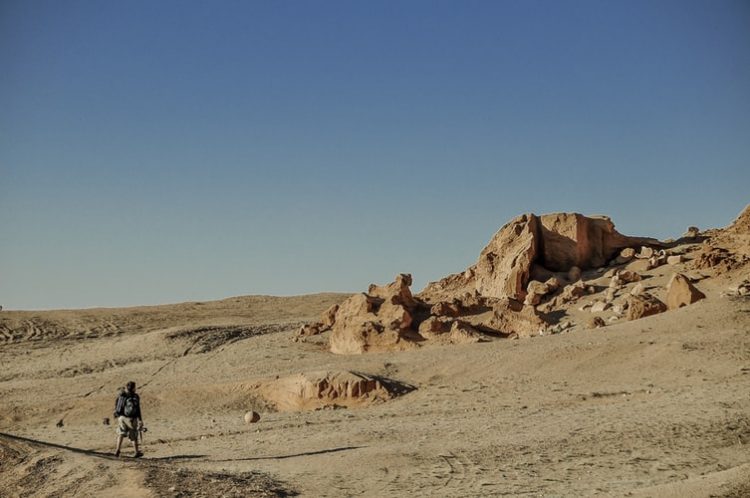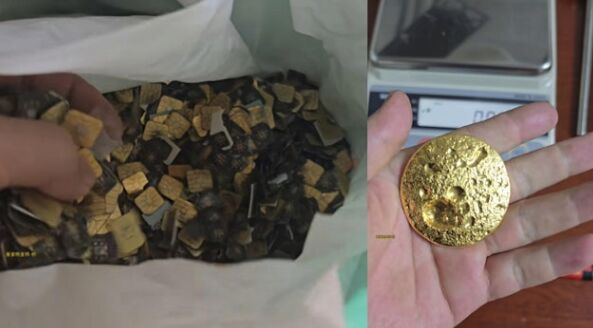Wang Tianchang and his family moved into the Gobi Desert 22 years ago, at a time when most people were running away from the encroaching wasteland. The Wangs have been fighting the desert ever since, becoming a symbol of China’s anti-desertification campaign.
Desertification is one of China’s most serious environmental problems. The great Gobi Desert at stretching along the border with Mongolia has so far eaten away about 650 million acres of the country’s land and is showing no signs of slowing down. As it moves ever deeper into the heart of China, massive sandstorms blow sand into the capital Beijing and other major cities, putting millions of lives at risk. The Great Green Wall, a reforestation program designed to create a 2,800-mile tree barrier at the edge of the advancing desert has had limited success so far, but the Chinese media machine focuses less on the shortcomings and more on the successes, using everyday heroes like Wang Tianchang and his family.

Photo: Victor He/Unsplash
A native of Gosu Province, Wang grew up with the Gobi Desert at his doorstep, but it wasn’t until his wheat, potato, and corn crops were destroyed by multiple sandstorms that he finally decided to take the fight to the enemy. In 1998, along with his wife and sons, Wang left Hongshui village and moved into the desert. They lived in a sandpit (a rudimentary form of housing in desert areas) for a while and started planting bushes and sapling to stave off the dunes.
In order to fund their efforts, Wang Tianchang sold most of its farm animals, 60 sheep, 7 camels, and 5 cows. They were left with only 6 sheep to support themselves, and to make matters worse because they weren’t familiar with the environment, the saplings they planted in the first two years were blown away by strong winds. But they learned, they adapted and they started over.
In time, they learned that planting trees in more sheltered areas yielded better results and that bushes and resilient grasses were ideal for “holding down the sand”. They pack dry grass in lattices into the sand, which gives it enough structural integrity to plant trees and bushes. A bush known as the sweetvetch has an 80 percent survival rate even in harsh desert conditions and has thus become a key part of the Wangs’ efforts.
Wang Tianchang has been fighting the desert for 22 years now, and despite being in his late 70s and suffering from serious health issues, he has no plans to abandon his mission. His son, Wang Yinji is currently in charge of the operations on the ground, but his father is always in the loop as well.
“When I first got here, it was yellow, no green at all,” Wang told Inkstone. “If we do nothing about it, the sand dunes will move south, six to 10 feet every year.”
Wang and his family spent over two decades of their lives and a reported $180,000 trying to stop the advancement of the desert, and their efforts have not gone unnoticed. The Chinese Government not only appointed Tianchang and his sons as forest ranchers in 2010, tasking them with covering the sand dunes with vegetation, but also started funding their work and using them as models for other eco-warriors.
The Wangs’ war against the Gobi Desert is far from over, but they seem to have at least turned their desert home into an oasis. The family home is surrounded by a beautiful vegetable garden, proving that land can in fact be reclaimed from the desert.
Although Wang Tianchang’s dedication has earned him the praise of millions of Chinese, experts say that his model is tough to implement in areas where underground water isn’t available. He and his family use water from a well to water the saplings and bushes they plant at least three times a year, but that’s not a possibility in other places, so his particular model won’t work.
The country’s entire Great Green Wall program has been put into question earlier this year, when, for the first time in six years, a massive sandstorm from the Gobi Desert hit the capital city of Beijing. China isn’t ready to throw in the towel just yet, and examples like Wang Tianfang are crucial to keeping the fight going on a large scale.
Wang Tianchang isn’t China’s only famous eco-warrior. Tububatu and his wife Taoshengchagan have also been fighting the encroaching desert for nearly two decades, as has Yi Jiefeng, a woman who planted millions of trees in memory of her late son.













